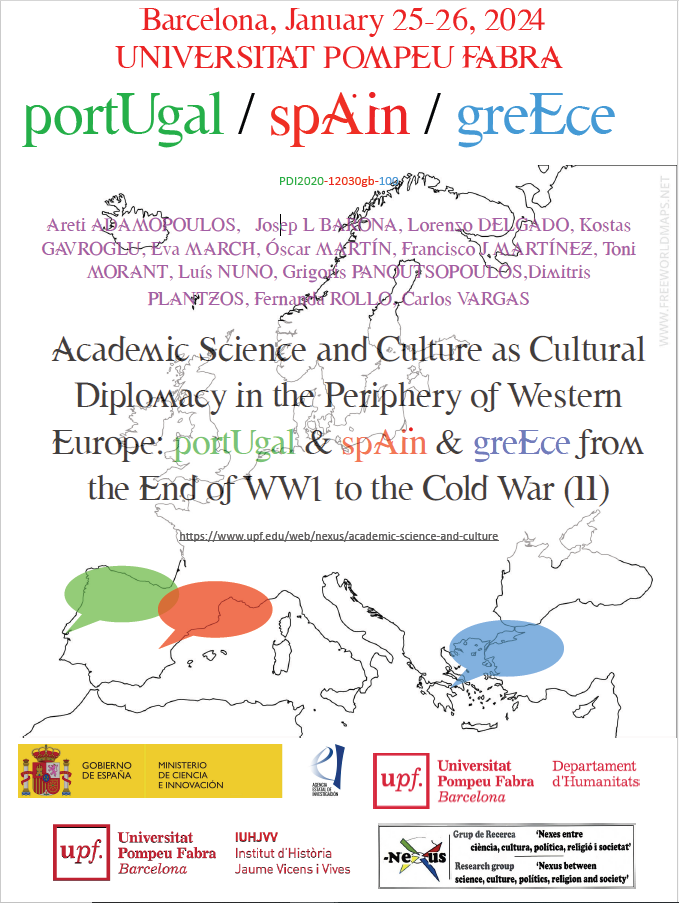Workshop: ACADEMIC SCIENCE AND CULTURE AS CULTURAL DIPLOMACY IN THE PERIPHERY OF WESTERN EUROPE: SPAIN, PORTUGAL, AND GREECE FROM THE END OF WORLD WAR I TO THE COLD WAR (II), UPF - January 25th - 26th 2024


Presentation
|
This workshop will be the second —of two— organised by the Nexus-UPF research group within the research project (PDI2020-120301gb-100) on Strategies of Spanish cultural diplomacy in the field of culture and academic science (1918-1975). The previous workshop took place in December 15th-16th, 2022. Therefore, contributions to both symposia will offer a comprehensive overview of the roles played by culture, science, technology, and academic activity in designing strategies for cultural diplomacy and soft power of Spain, Greece and Portugal in the period from the WWI until the first phase of the Cold War. The original contribution offered by the two workshops is a study of the role cultural diplomacy played for those three Southern European countries during the considered period. Current historiography on cultural diplomacy usually focuses on the agency of the world's major powers, almost neglecting the role of peripheral countries in the generation and dissemination of cultural and scientific products. Our theoretical approach considers that a good picture and understanding of culture and science as political resources in international connections will be obtained by the choice of exemplary cases, with selected examples covering arts, academic activity, culture, science, and technology. Contributions to the workshop will highlight the following topics:
Our objective is twofold. First, a discussion on the cultural and scientific diplomatic strategies those South European countries developed under the deep geopolitical transformations that occurred in the considered time-window. Indeed this objective includes an analysis of the relevance —and possible success— these countries accorded to the involved diplomatic issues. Second, a study of how those cultural and scientific diplomacies strategies contributed to establishing the place these peripheral South European countries occupied, not only in the Western context, but also in a worldwide international order. |
Room: 23.103
Building: Edifici Mercè Rodoreda
Campus: Campus de la Ciutadella
Program
+ Links to the videos of the sessions ![]()
